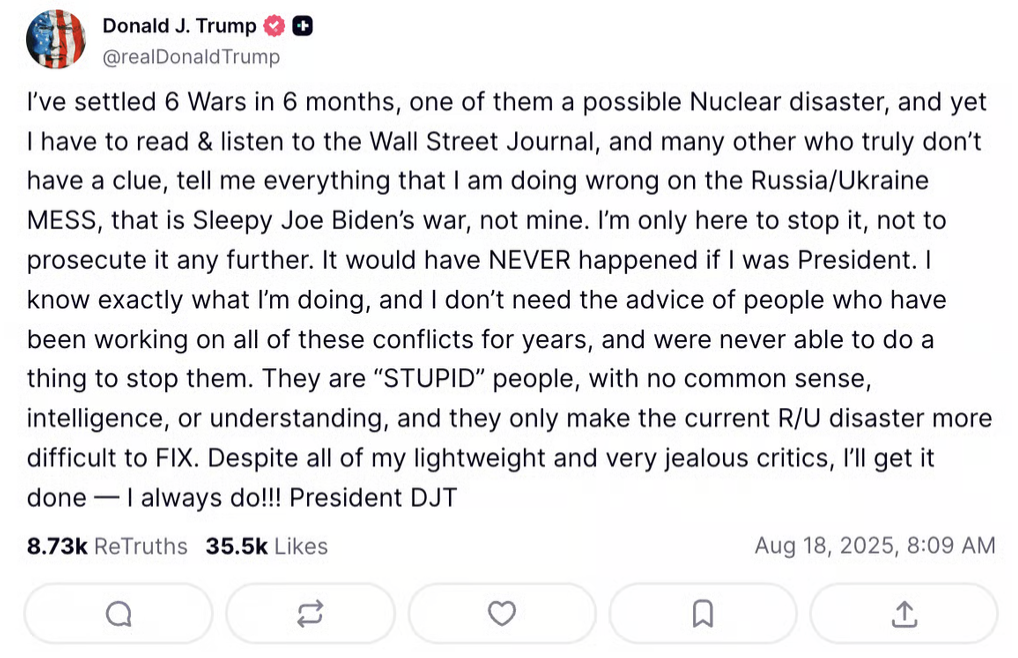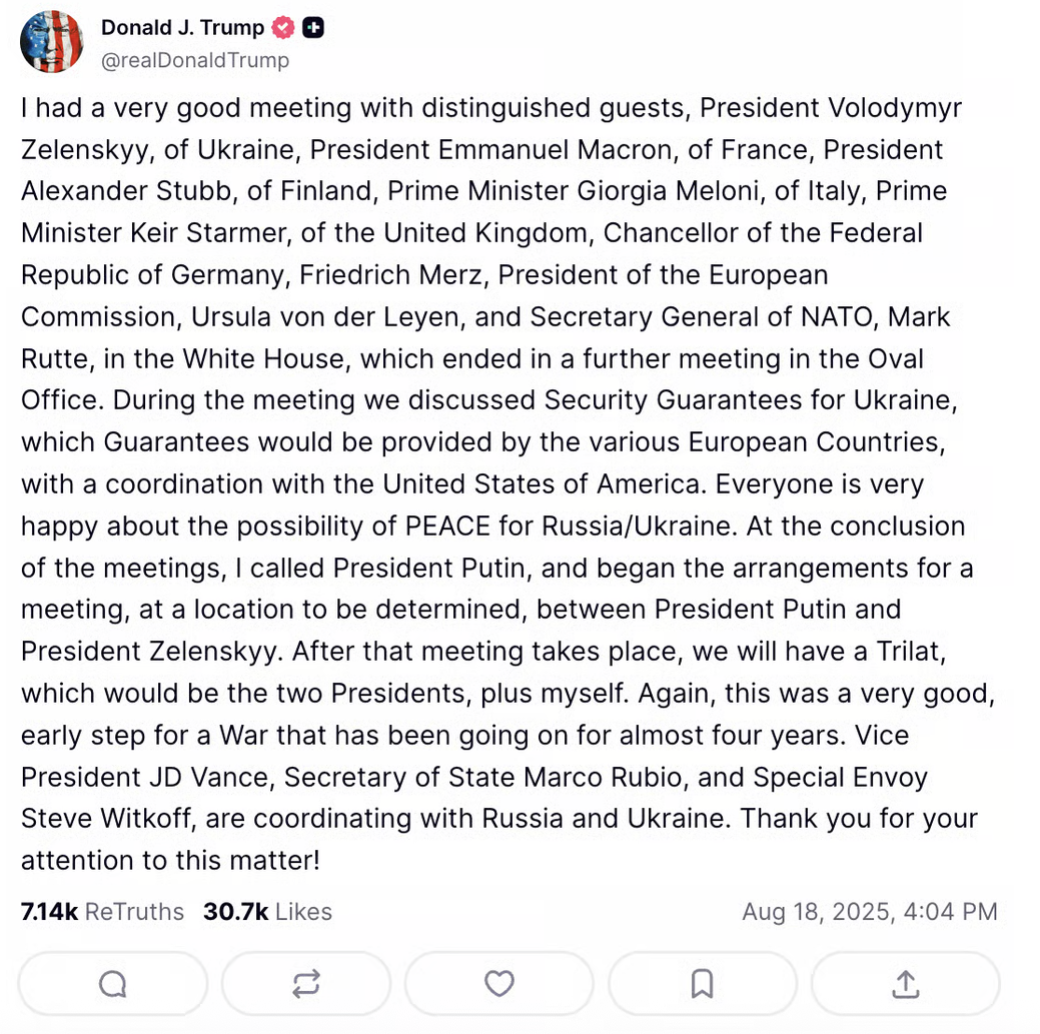Diplomacy in Motion
What has President Trump said this week?
〰️
What has President Trump said this week? 〰️
1. Six Wars in Six Months?
President Trump claimed he had “ended six wars,” later raising the figure to seven (Truth Social, 2025). While most of these cases reflect temporary ceasefires or pauses in fighting rather than formal peace treaties, they do show efforts to engage diplomatically in long-standing disputes (CNN, 2025; Axios, 2025).
The conflicts he cites include Armenia–Azerbaijan, Democratic Republic of Congo–Rwanda, India–Pakistan, Israel–Iran, Cambodia–Thailand, Egypt–Ethiopia, and more recently Russia–Ukraine (NYT, 2025). In several instances, Trump’s involvement coincided with short-term de-escalations, and leaders publicly acknowledged U.S. mediation. However, many of the underlying tensions remain unresolved, and no lasting agreements have been secured (BBC, 2025).
Overall, while the outcomes are fragile and largely symbolic, Trump has been active in using high-profile diplomacy to keep dialogue open and temporarily calm flashpoints. Legally and diplomatically, the absence of binding agreements underscores the limits of current multilateral efforts. Economically, only formal and enforceable peace treaties can provide the stability needed for global markets, energy prices, and investment climates.
2. Mail‑in Ballots: “Very Expensive” and “Corrupt”?
President Trump has pledged to eliminate mail-in voting, calling it “highly inaccurate, very expensive, and seriously controversial” and saying lawyers are drafting an executive order to that effect (Truth Social, 2025).
Constitutionally, such a move would face significant barriers. The U.S. Constitution grants states—not the president—the power to regulate elections, making a unilateral federal ban unlikely (Washington Post, 2025). Election experts note that fraud in mail-in voting is extremely rare and that safeguards such as signature verification and barcoded tracking protect ballot integrity (ABC News, 2025).
Politically, Trump’s efforts highlight his determination to reshape the U.S. voting system, reinforcing his appeal to voters who prioritize election security. However, the approach risks alienating groups that rely on mail-in voting, including older voters, people with disabilities, and military personnel abroad.
3. Trump, Zelenskyy, Putin, and European Leaders.
President Trump announced on Truth Social that he had met with Ukrainian President Volodymyr Zelenskyy and several European leaders, including representatives from France, Italy, Finland, the United Kingdom, Germany, the European Commission, and NATO (Truth Social, 2025).
Last week’s summit in Anchorage, Alaska, between Trump and Russian President Vladimir Putin ended without a formal agreement, though both leaders described the talks as “productive.” Putin reiterated opposition to Ukraine’s NATO membership, reflecting ongoing tensions (Washington Post, 2025).
On Monday, Trump urged Zelenskyy and Putin to join him in a three-way peace conference—an idea Zelenskyy welcomed but Putin has not formally accepted. Trump later suggested Zelenskyy and Putin meet one-on-one first, with the U.S. and European partners potentially playing a supporting role (WSJ, 2025). European leaders, who also met with Trump and Zelenskyy in Washington, discussed possible “security assurances” for Ukraine involving a European-led force with U.S. coordination.
The flurry of diplomacy has reinforced Trump’s image as an active negotiator willing to push for dialogue, even as outcomes remain uncertain. The lack of firm commitments from Moscow and the complexity of territorial disputes highlight the fragile path ahead.



